fresh ricot!
When you make mozzarella cheese, you end up with a lot of whey; the nutritious and sweet-smelling liquid left over from curdled milk when the curds are removed. Whey contains water-soluble vitamins, minerals, and proteins in the milk. There are many things you can do with this leftover whey. You can feed it to your pets, it’s good for them and they love it! You can water your plants with it. And you can make more cheese with it – ricotta cheese!
Ricotta is Italian for “twice-cooked.” It is a soft, smooth, fresh, unripened Italian cheese usually made from the whey of cow’s or sheep’s milk. It can be used in a variety of sweet and savory dishes including lasagna, ravioli, cannoli, etc. Or you can just stir in some fresh herbs and freshly ground black pepper and use it as a cracker spread.
Ricotta is made by using heat to separate the remaining albumin protein from the whey left over from making mozzarella. Ricotta is not a high-yield cheese, but it’s deliciously worth the minimal time and effort.
Homemade Ricotta
In a heavy pot, over direct heat, heat 1 gallon of whey to 200 degrees. Add 2 tablespoons of fresh lemon juice, and bring back up to 200 degrees. You will see very small white particles, the albumin protein, floating in the whey.
Remove the pot from the heat, cover, and let rest, undisturbed, for 15 minutes.
Line a strainer with a very fine cheesecloth. You must use a very fine cloth here, or your cheese will pass through. I used 9 layers of cheesecloth and not a spec of cheese passed through.
Place the lined strainer over a big bowl or pot so you can save the whey and carefully pour it into the strainer.
Tie the ends of the cheesecloth together and hang the ricotta, over a bowl in the refrigerator, to drain for an hour.
When it has drained, place the ricotta in a bowl, break up, stir and add salt to taste, about 1 teaspoon to start with. Fresh ricotta will keep for about 5 to 7 days covered in the refrigerator.
Note: You can also make fresh ricotta out of whole milk. Just increase the lemon juice to 1/4 for each gallon of milk.

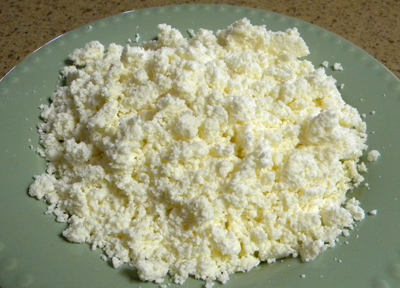
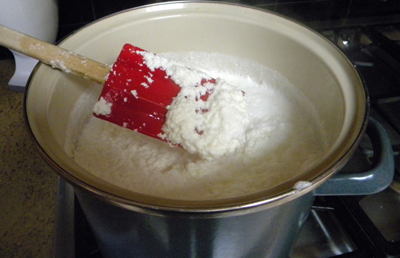
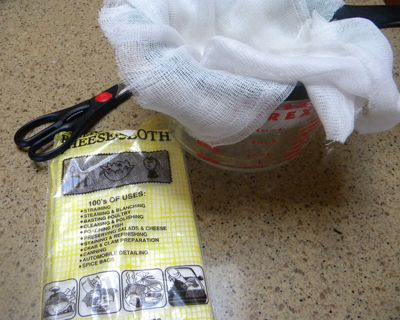
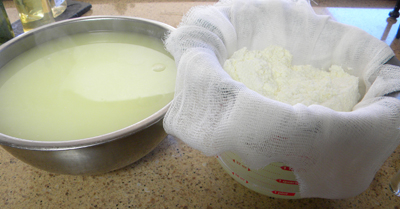
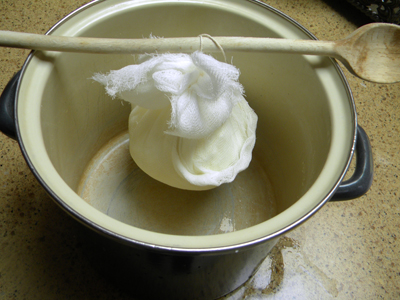




0 comments
Kick things off by filling out the form below.
Leave a Comment